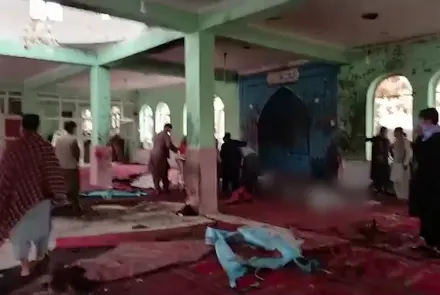Members of the UN Security Council in a statement condemned “in the strongest terms the heinous terrorist attack against the Imam Zaman Mosque in Pule Khomri, the capital of Baghlan province in northern Afghanistan, on 13 October, which was claimed by ISIL (Daesh)-K and resulted in dozens of people killed and many more wounded.”
The members of the Security Council expressed “their deepest sympathy and condolences to the families of the victims, and they wished a speedy and full recovery to those who were injured.”
At least 7 people were killed, and 17 others were wounded in the suicide bombing that targeted Imam Zaman Mosque in Pul-e-Khumri.
The members of the Security Council underlined “the need to hold perpetrators, organizers, financiers and sponsors of these reprehensible acts of terrorism accountable and bring them to justice.”
“The activities of Daesh should be prevented. I mean Daesh activities have reduced but not eliminated completely, not to zero. When proper measures are not taken for it and this group is not pressured constantly, its activities may increase,” said Asadullah Nadim, a political analyst.
The Islamic Emirate’s spokesman, Zabiullah Mujahid, meanwhile said that Daesh is being suppressed in Afghanistan.
“Within these several past months, many sanctuaries of Daesh … have been eliminated. Only a few percentages in some areas are still making movements,” he said.
The attack was widely condemned across the world.
The spokesman for the European External Action Service in a statement condemned the blast, saying that the “attacks that deliberately target civilians are violations of fundamental human rights and international humanitarian law.”
“The human rights of all Afghans, including the right to life and the rights of all ethnic and religious communities, have to be protected and respected,” the statement said.
Torek Farhadi, a political analyst, said that Daesh has been active in Afghanistan for seven years. “Daesh in Afghanistan approximately has been targeting our Shia countrymen from seven years in mosques and clubs as well as schools. We should be careful because Afghanistan has yet to get rid of this problem,” he said.










